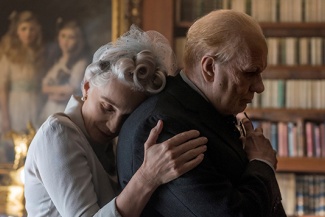Journalist porn! That was how one friend, the editor of a national news magazine, described The Post. And he's not wrong.
It is the story of how two papers, the New York Times and, more importantly, the Washington Post gained access to the Pentagon Papers, a secret government report that blew the lid off US collusion in the disaster that was the Vietnam War, and published - despite the real risk that they would be damned for their decision.
So yes: in an age when journalists are widely condemned as venal, unprincipled purveyors of “fake news”, this is food for the soul.
A pre-feminist tale
Yet, to focus on the headline story, is to miss a vital theme that chugs away throughout. For this film is not just about speech. Nor is it, as one reviewer billed it “the unlikely partnership between The Washington Post's Katharine “Kay” Graham (Meryl Streep), the first female publisher of a major American newspaper, and editor Ben Bradlee (Tom Hanks): though that aspect, together with the transformation of their relationship from polite but frosty to mutual support is foregrounded throughout.
Rather, as with the recent Hidden Figures, which exposed a hitherto untold story of the contribution of black women to th US space program, The Post provides a touching and insightful window into 60's feminism. Or rather, pre-feminism.
Graham is a competent socialite and hostess, gliding effortlessly from one High Society function to the next. Making witty speeches, charming all she meets, she is a true insider, personal friend to at least two recent Presidents and the woman that Bob McNamarra (Bruce Greenwood), the man who commissioned the Pentagon Papers, confides in when he finds himself in the press spotlight.
She knows her stuff: understands the dynamics of the business she inherited in a way that no other member of her all male board does. Yet this is not the noughties – nor even the eighties. - when a similarly invisibled woman might be champing at the bit and preparing to kick ass for the sisterhood!
Early on, a poignant scene juxtaposes her own command of her role, when discussing the business in private, with the way she is silenced the moment she sits down to chair a meeting of her board. In part, this is a phenomenon that almost every woman will know all too well. When she says a thing it is as though she hasn't spoken: when a man repeats the very same thing, it is hailed as deep wisdom.
But it is also her own history that silences her. As she owns to her daughter, later in the film (I paraphrase), when year after year everyone just looks through you and ignores you, you come to believe yourself that you don't matter.
For mums (and grandmums)
As the film progressed I found myself more and more thinking back to my mother, another woman silenced by the age in which she lived and social convention. For many years she worked alongside my father, a GP, “helping out” with patients, with admin, with staff. It was only when my father retired that this role, which for many years the NHS refused to pay for, became formalised as Practice Manager – a title to which she would later informally add IT and Systems Manager.
Like Kay Graham, my mother spent much of her life under-estimating herself: and that was part and parcel of an attitude that saw women's work as “just” helping; that refused to give it recognition on a par with men's work, which was, of course, real and serious.
So yes. If you like stories about swashbuckling journalists and judges upholding free speech, you'll love this. You will certainly appreciate the nudge and wink that Director Steven Spielberg provides in the final scene towards the Watergate scandal, to which this is mere prelude, and the heady action of All the President's Men.
But Spielberg knows what he is doing. There is a point to centring this film not just in the news room, but in the personal life of Kay Graham. For those worrying about the news, the film's climax comes with the Supreme Court verdict on whether the newspapers were entitled to publish.
For those interested in the wider issues, the real turning point arrives when Kay finally emerges from decades of ingrained deference and, standing up to the men on her board, takes the decision to publish.
So watch this for the journalist porn, by all means: but watch this for your mothers and your grandmothers too. For this is their story as well
Four stars
(And if you'd like to read a little more about Katharine Graham, click over to her obit here)




